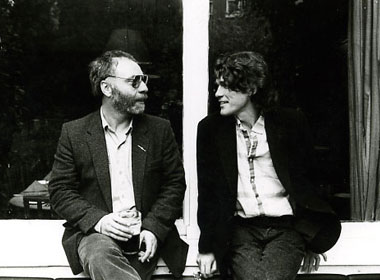Screenwriting/True Stories
My screenwriting encompasses fiction as well as true stories - the latter a speciality of mine (see my Home page) - particularly ones that I sense have some kind of mythical undertow, a connection with ‘the collective unconscious’.
The challenge with true stories is turning them into screenplays that, whilst being truthful to their essence, work completely in their own right as cinematic drama, that are almost 'too good to be true'. That’s what separates the kind of work I’m interested in from the conventional ‘biopic’.
I’m drawn to the complexity of the human condition, the mystery of others and their expression in the non-verbal.
When writing I’m trying to sense what the characters might be hiding, consciously or unconsciously. The more elusive this proves, the more human and more compelling they promise to be. (see Screenplay Samples)
I try to give readers as rich a sense as possible of the inner lives of the characters and the inner life of the eventual film.
How my work can best resonate with actors is of vital importance to me. I write the characters in great detail, with all the gestures, nuances, looks etc. The more the actors have to choose from, the more they can find their own sense of their characters. (see Directing/Actors)
It's exciting when you find that you've written a complex characterisation that has great scope for actors' own interpretations. It makes you impatient to see what they'll do with it.
I know that I'm on good ground when I sense that my characters, whether imagined or real people, resonate with my 'shadow family' - the gallery of father and mother figures, of course, but also brothers and sisters, who seem hard to escape in one's inner life!
I’ve learnt how invaluable great script editors like Archie Tait and Jack Lechner are. Not least they can be so much more revealing than oneself about what one is up to! I also road-test my work widely during its progress, including among non-industry readers, to get a sense of what is and isn't coming though in my material.
I need to feel not just that my work is creatively valuable but that it might be practically makeable. And why.
When writing film treatments and screenplays drawn from the work and lives of others, whether true stories or fiction, I like to keep a very open line with the real people involved about the progress of my work and, where practicable, to involve them in the creative process. This can be helpful in dealing with the central challenge - that your work satisfies them whilst remaining true to your own guiding lights. (see References)
The film and TV industries have become dominated by improperly digested text-book thinking about how stories and screenplays should operate and by equally questionable assumptions about audiences. This may make executives feel safer, but it's inhibiting to writers and filmmakers wanting to explore uncharted themes and differing forms of expression and thereby find new audiences. (see News: Current Projects)
Ingmar Bergman compared a screenplay to a musical score, with lead singers and instrumentalists as lead actors and the director as conductor. He was speaking as a director who wrote his own screenplays, but it's still an encouraging thought for writers constantly being told that their work is "simply a blueprint".
It's daunting to realise how many great films and filmmakers wouldn't stand a chance of getting developed and financed if they were starting out in the present, highly conservative climate, even by the State bodies supposedly responsible for developing new work and practitioners. Take Bergman, Bunuel, Godard and perm any number. And how would Trainspotting fare now?
I’ve always liked Graham Greene’s exhortation to ‘tread the line between what is and what could be’ – the romantic realist’s take on art, politics and living.
And Picasso’s ‘I don’t seek; I find’ – the intuitive’s abiding openness to surprise, chance, accident, serendipity, the inexplicable.


